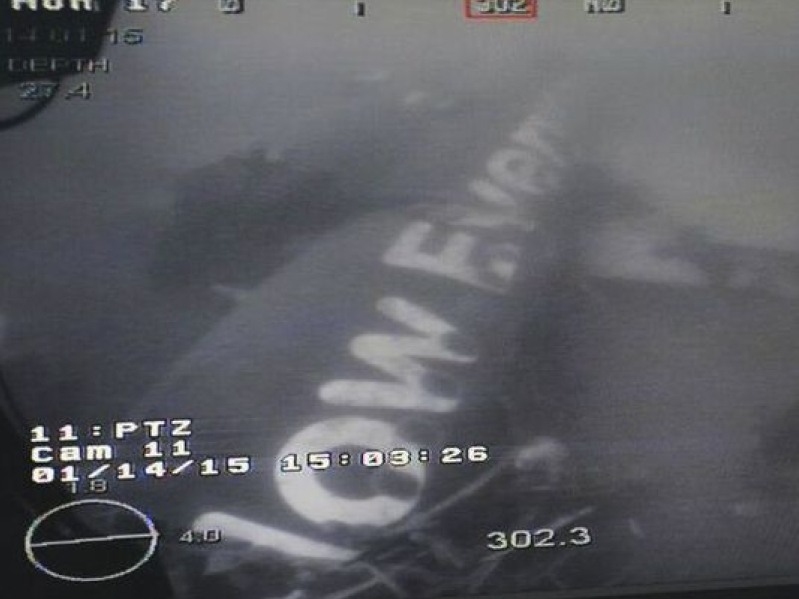
Divers have managed to find both black boxes from AirAsia Flight QZ8501. Now they have found the fuselage of the doomed flight and are attempting to retrieve bodies from there.
According to Jane Onyanga-Omara of USA Today, Ng Eng Hen, Singapore's Defense Minister, mentioned in a statement Wednesday that one of the city-state's vessels located the doomed plane's fuselage. Indonesia's National Search and Rescue chief Bambang Soelistyo noted that the discovered fuselage section was 100 feet long and 30 feet wide, with a height of 10 feet.
"The fuselage with a wing still attached on it was found in the priority search area and has been confirmed as part of AirAsia plane," Soelistyo said.
Ng told USA Today that according to images taken by a remotely operated vehicle, part of the aircraft's wing and words on the fuselage were clearly visible. He added that its discovery may provide some closure for families and friends of the victims.
"The accident is a tragic event resulting in the loss of many lives," Ng said. "I hope that with the fuselage located, some form of closure can come to the families of the victims to ease their grief."
Jason Hanna and David Molko of CNN reported that the fuselage discovery added to the significant finds elsewhere in the Java Sea. Although he did not reveal the depth of its location, Soelistyo told reporters on Wednesday that efforts have now been prioritized to search for bodies within the fuselage.
Soelistyo indicated that Indonesian officials could decide to "lift the fuselage out of the water" if divers have trouble accessing the bodies.
CNN noted that when the plane's tail was extracted from the Java Sea last week, crews used giant balloons to lift it from the bottom of the sea. A crane was later used to lift the tail onto a ship.
According to CNN, more than 100 remaining bodies could be found in or near the plane's fuselage. Indonesian officials indicated to reporters that as of Wednesday night, 50 bodies had been recovered elsewhere.
As for the black boxes, their recovery would now be invaluable tools in finding what happened to Flight 8501, which took off from Surabaya, Indonesia and was supposed to land in Singapore on Dec. 28. Mardjono Siswosuwarno, a senior official at Indonesia's National Transportation Safety Committee, indicated to CNN that the cockpit voice recorder may be more useful in finding why it crashed as opposed to the flight data recorder, which records information such as air speed and cabin pressure.
"The 'why' is mostly in there," he said of the voice recorder to CNN, which captures conversations between pilots as well as other sounds in the cockpit.
According to CNN, crash investigators have successfully downloaded the contents of both devices. However, Siswosuwarno warned that interpreting the data could take some time.
"The final report containing investigators' full conclusions will take months," he said to CNN.
USA Today noted that both black boxes have been sent to Jakarta for analysis in order to figure out what happened to the plane. In the meantime, AirAsia Indonesia president Sunu Widyatmoko acknowledged in testimony before the Indonesian parliament this week that due to an "administrative mistake," the airline only proposed a schedule change to allow for Sunday flights in a verbal manner.
The Indonesian government continues to maintain that AirAsia did not have a license to fly the selected route on the day of the crash, a claim which the company has vigorously disputed according to USA Today.






